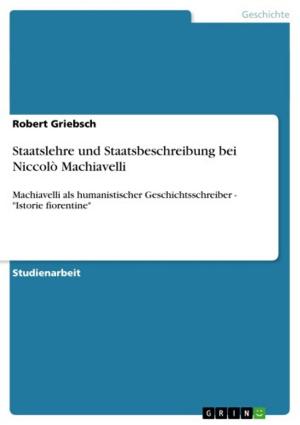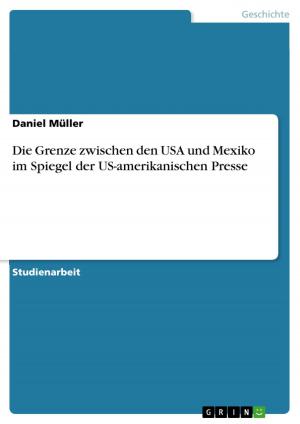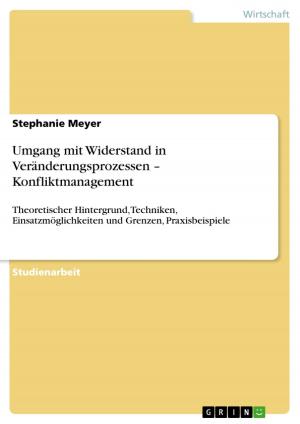Forging an Aboriginal Identity in 21st Century Australia
Nonfiction, Social & Cultural Studies, Political Science, International, International Relations| Author: | Kirstine Steno | ISBN: | 9783656037057 |
| Publisher: | GRIN Verlag | Publication: | October 25, 2011 |
| Imprint: | GRIN Verlag | Language: | English |
| Author: | Kirstine Steno |
| ISBN: | 9783656037057 |
| Publisher: | GRIN Verlag |
| Publication: | October 25, 2011 |
| Imprint: | GRIN Verlag |
| Language: | English |
Scientific Essay from the year 2008 in the subject Politics - International Politics - Region: Australia, New Zealand, University of Copenhagen (Institute of English, Germanic and Romance Studies), course: Contemporary Australia, language: English, abstract: I will begin this essay with a question posed by Bill Bryson in his traveling companion to Australia Down Under: '... ask yourself (...) when was the last time in any context concerning (...) the rise of civilizations that you saw even a passing mention of the role of Aborigines?' Most non-Australians and possibly even most born and bred Australians would probably not award this kind of achievement to these 'the planet's invisible people' (p. 265) . Although the rise of civilization has yet to be accredited to Aborigines, these peoples have come a long way in contemporary Australian society. Aborigines and Torres Strait Islanders have been the source of much debate about nation, politics, morals, and tolerance in the 21st century and the recent apology given to them by the Prime Minister has sparked additional interest in reconciliation. This essay will explore the status of Aborigines in contemporary Australian society and their importance in the forging of a common Australian identity. I will draw in Sally Morgan's novel My Place to further demonstrate my points and to bring in an Aboriginal voice. This essay explores the issues that surround Indigenous Australians in contemporary society and the controversies between Aboriginals and white Australians by drawing in newspaper articles from the Australian. I will present a short overview of Aboriginal history in Australia with special emphasis on the representation of Aborigines in recently revised history. I will also touch on the importance of Prime Minister Kevin Rudd's Apology to Australia's Indigenous Peoples and attempt a glance at the future of Aborigines in Australian society.
Scientific Essay from the year 2008 in the subject Politics - International Politics - Region: Australia, New Zealand, University of Copenhagen (Institute of English, Germanic and Romance Studies), course: Contemporary Australia, language: English, abstract: I will begin this essay with a question posed by Bill Bryson in his traveling companion to Australia Down Under: '... ask yourself (...) when was the last time in any context concerning (...) the rise of civilizations that you saw even a passing mention of the role of Aborigines?' Most non-Australians and possibly even most born and bred Australians would probably not award this kind of achievement to these 'the planet's invisible people' (p. 265) . Although the rise of civilization has yet to be accredited to Aborigines, these peoples have come a long way in contemporary Australian society. Aborigines and Torres Strait Islanders have been the source of much debate about nation, politics, morals, and tolerance in the 21st century and the recent apology given to them by the Prime Minister has sparked additional interest in reconciliation. This essay will explore the status of Aborigines in contemporary Australian society and their importance in the forging of a common Australian identity. I will draw in Sally Morgan's novel My Place to further demonstrate my points and to bring in an Aboriginal voice. This essay explores the issues that surround Indigenous Australians in contemporary society and the controversies between Aboriginals and white Australians by drawing in newspaper articles from the Australian. I will present a short overview of Aboriginal history in Australia with special emphasis on the representation of Aborigines in recently revised history. I will also touch on the importance of Prime Minister Kevin Rudd's Apology to Australia's Indigenous Peoples and attempt a glance at the future of Aborigines in Australian society.















